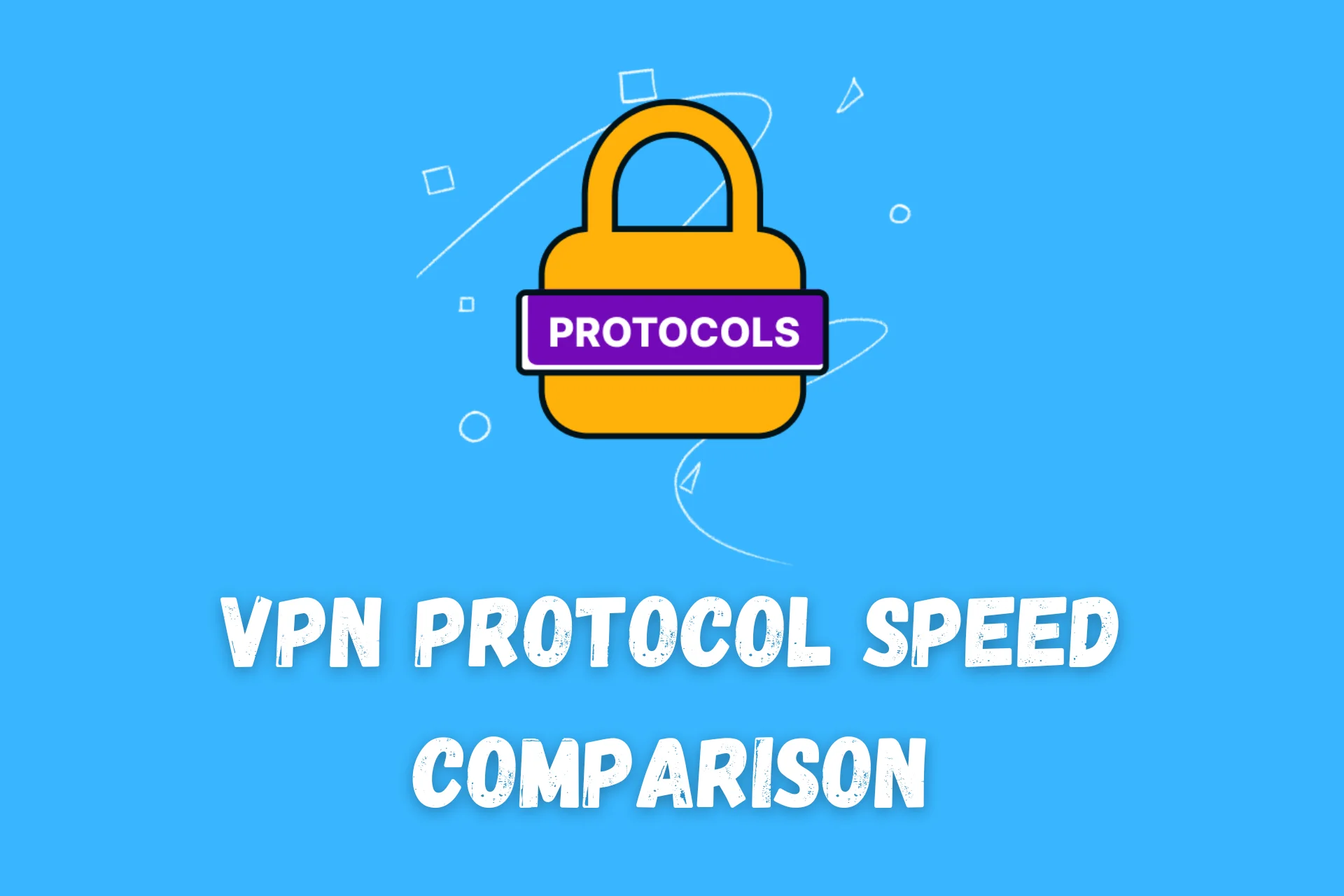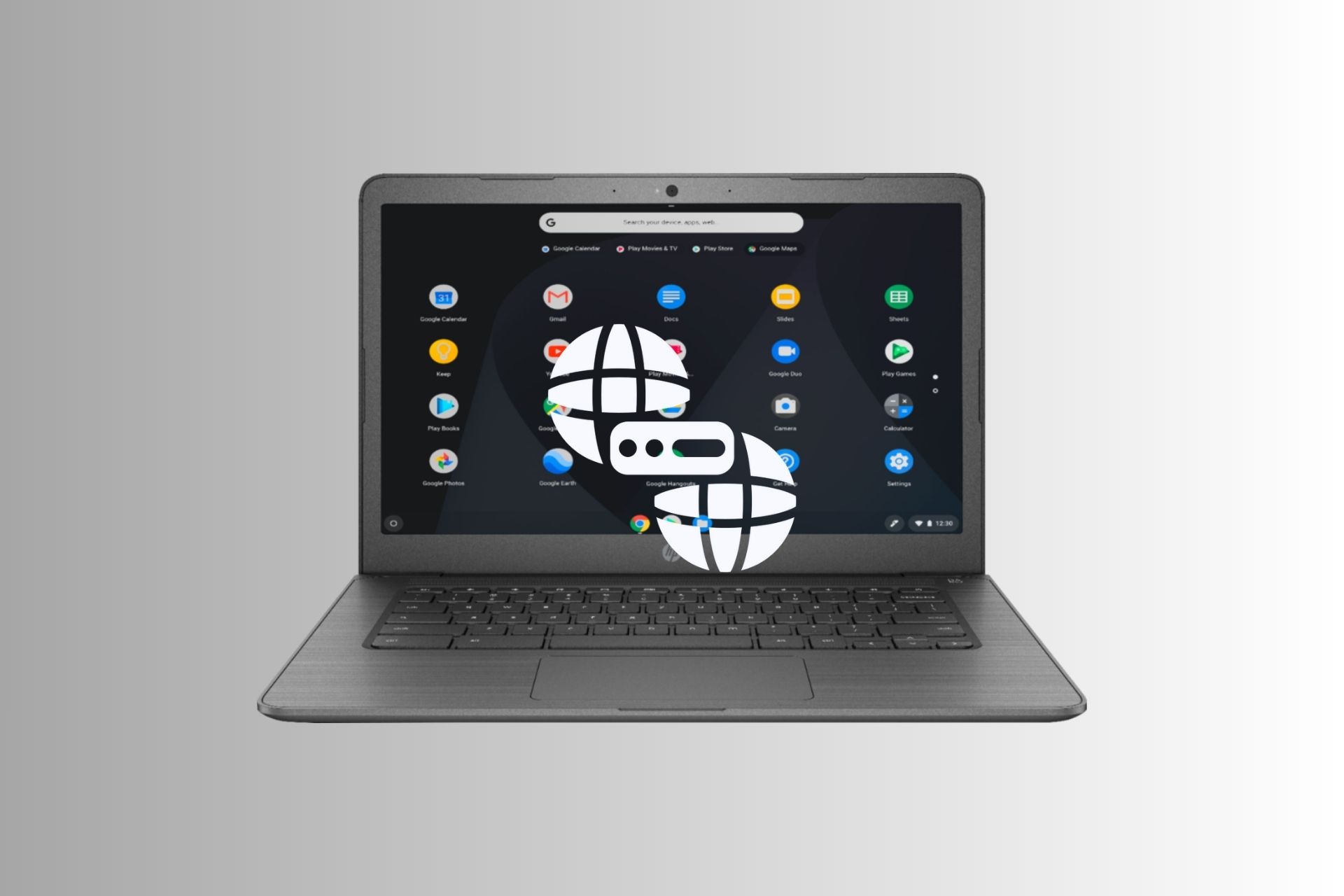VPN Protocol Speed Comparison [Which Protocol to Use and Why]

If you’re a beginner, it’s quite normal to stay away from that Protocols tab in your VPN’s settings. While fine-tuning your service is clearly beneficial, you also don’t want to screw anything up.
The first thing I used a VPN for years ago was to unblock the US Netflix library. It worked like a charm, but soon there was a problem.
Buffering.
I knew VPNs could have an impact on speed, but I didn’t imagine it to be that noticeable. So, I started looking for solutions and came to a revelation. My VPN was using the OpenVPN (TCP) protocol by default, which isn’t necessarily the fastest.
A guide recommended switching to WireGuard, and all of a sudden, House of Cards streamed like a dream.
So, to help you avoid similar pitfalls, I ran a deep VPN protocol speed comparison. I tested all the major tunnel types on five leading providers to find the average download and upload speeds.
I’ll also show you how to choose a protocol that’ll give you the best possible performance without sacrificing security.
Ready? Let’s go.
VPN protocol speed comparison
I ran my tests using the same server location – New York – on five of the top VPN services on the market today – ExpressVPN, NordVPN, PIA, CyberGhost, and Surfshark.
Here are the average speeds I got with each protocol:
| Protocol | Average download speed | Average upload speed |
| OpenVPN (UDP) | 25 Mbps | 0.94 Mbps |
| OpenVPN (TCP) | 16.32 Mbps | 0.58 Mbps |
| Lightway (TCP) | 13.3 Mbps | 0.39 Mbps |
| Lightway (UDP) | 15.9 Mbps | 1.33 Mbps |
| WireGuard | 22.4 Mbps | 0.97 Mbps |
| IKeV2 | 18 Mbps | 0.76 Mbps |
| L2TP/IPsec | 15.2 Mbps | 1.4 Mbps |
As you can see, OpenVPN (UDP) scored the highest when it comes to download speed. WireGuard, is a very close second, with a bit higher upload speeds.
On that metric, however, none of the two even came close to the upload kings – Lightway (UDP) and L2TP/IPsec.
While you might think that you have it all figured out by now, speed is not the only piece of the puzzle. So, let’s dive deeper and see what different protocols are all about:
OpenVPN
This is a versatile and widely-used open-source protocol that can run on all major operating systems, including Windows, macOS, Linux, Android, and iOS.
OpenVPN utilizes the OpenSSL library for encryption, offering strong security through 256-bit keys. This makes it an excellent choice if you want to prioritize data protection and privacy.
However, this protocol’s strong encryption can impact connection speeds. Encrypting and decrypting traffic consumes CPU resources and may reduce speed and increase latency.
Another reason is the fact that OpenVPN is an older protocol and was created with security and compatibility in mind, not necessarily speed.
With that said, this tunnel type is still fast enough for most daily activities.
WireGuard
WireGuard is a lightweight and open-source VPN protocol designed to establish secure and fast connections. It’s also straightforward to implement and offers better performance without compromising security.
Additionally, It uses Curve25519 for key exchange and ChaCha20 for symmetric encryption, along with Poly1305 for message authentication. These modern algorithms provide high-level security.
Furthermore, WireGuard can deliver impressive speeds while also maintaining stable connections, even under challenging network conditions.
For example, It performed the best when it comes to download/upload speed ratio, with an average of 22.4 Mbps. This is possible mainly because WireGuard has a smaller codebase compared to traditional VPN protocols.
Therefore, there’s less overhead in processing packets, resulting in faster encryption and decryption. Users who require quick access to online resources with minimal latency can rely on WireGuard.
IKEv2/IPsec
Although commonly used for VPNs, other applications that require secure communication, such as file sharing and VoIP, can also make use of it.
IKEv2 uses a variety of encryption algorithms, including AES, Blowfish, Camellia, and 3DES. This makes it a very secure protocol, and one of the best alternatives to OpenVPN and WireGuard, especially when it comes to gaming and mobile use.
In my tests, IKEv2 achieved download and upload speeds of 18 Mbps and 0.76 Mbps, respectively. That’s a minimal drop from my base speed and should be more than enough for most online activities.
L2TP/IPsec
L2TP/IPsec is a VPN protocol combining Layer 2 Tunneling Protocol (L2TP) with Internet Protocol Security (IPsec). L2TP creates a secure tunnel for data, and IPsec encrypts it for protection.
IPsec carries out the encryption over the L2TP tunnel and employs various algorithms like AES, 3DES, and Blowfish. The specific algorithm used will depend on your VPN provider’s settings.
Moreover, L2TP/IPsec has broad compatibility with major operating systems, making it accessible to many users. It also offers commendable security and performance.
However, it can be slower than other VPN protocols like OpenVPN. Despite this drawback, the configuration process is typically straightforward.
Lightway
Lightway is a VPN protocol developed by ExpressVPN and released in 2021. It’s designed to be faster and more secure than older protocols, while also being easier to set up.
Lightway uses a minimalistic codebase, which reduces the potential for vulnerabilities and bugs while also improving performance.
Additionally, it employs a new handshake protocol that reduces the time it takes to connect to a VPN server This protocol is faster than OpenVPN but just like the rest, server distance and encryption may slow it down.
Lastly, it uses the wolfSSL cryptographic library, which is optimized for performance and security. By leveraging modern cryptographic techniques, Lightway ensures both speed and robust security.
Which VPN protocol to use?
The main reason why top VPN providers offer multiple protocols is that they have different use cases. Getting into the habit of switching protocols depending on your activities will let you get the most out of your VPN.
OpenVPN – best for bypassing geo-blocks and P2P
OpenVPN is a good protocol for bypassing geo-blocks. It’s very secure and difficult to block, and it can be used to connect to VPN servers in different countries. This also makes it well-suited for P2P traffic.
Its TCP/IP is super reliable and can be used for a variety of applications, including web browsing, email, and file sharing. I also recommend OpenVPN (TCP) for online banking or activities that put your data at risk.
Although OpenVPN typically provides a stable enough connection for streaming or gaming, it’s not the best for these activities speed-wise.
That’s because it uses the OpenSSL library for encryption, which can be computationally expensive and lead to slower speeds.
Pros:
- Highly-secure
- Can be configured to use any port, making it difficult to block.
- Supports several encryption algorithms, with AES and Blowfish being the most common.
Cons:
- Not as fast compared to other protocols like WireGuard.
- Manual setup can be difficult.
WireGuard – best for streaming
WireGuard is a relatively new VPN protocol that is quickly gaining popularity due to its speed, security, and ease of use. It’s especially well-suited for streaming because it can provide fast and reliable connections.
The protocol is faster than other options, such as L2TP/IPSec. This is due to its smaller codebase and fewer cryptographic operations, which make it more efficient and less resource-intensive.
In terms of security, WireGuard is considered to be just as secure as other well-established VPN protocols. It uses the same cryptographic algorithms, and it has been audited by security experts.
However, WireGuard is a newer protocol, so there’s a small chance there may be undiscovered vulnerabilities.
As a result, WireGuard may not be as well-suited for activities that require the highest levels of security, such as online banking and browsing data-sensitive sites.
Pros:
- Very fast, with significant speed improvements over other protocols.
- Uses state-of-the-art cryptography.
- Easy to configure.
Cons:
- Less well-established than OpenVPN and IPSec.
- Assigns IP addresses statically, which means some user data needs to be stored on the server.
IKEv2/IPsec – best for gaming and mobile use
IKEv2/IPsec is one of the fastest VPN protocols available, which is important for gaming. A slow VPN connection can cause lag and other problems that can ruin your gaming experience.
Furthermore, it’s also secure, using strong encryption to protect your data from hackers and other third parties. This is important for gamers who want to keep their personal information and gaming activity private.
Its encryption model may help save gamers from DDoS attacks. In addition to this, its seamless performance on mobile devices makes it even better.
Additionally, IKEv2/IPsec is a very stable protocol, which means that it is less likely to drop your connection in the middle of a game. Apart from that, it uses less CPU resources.
Lastly, IKEv2 has features that are specifically designed for mobile use. For example, it supports MOBIKE, which allows your VPN connection to smoothly switch between different networks without dropping.
This is important for users who frequently switch between WiFi and cellular data.
Pros:
- Fast connection establishment.
- Secure, supporting several levels of AES encryption.
- Good for mobile devices due to its reconnection capabilities.
Cons:
- Can be complex to configure
- Not as widely supported as some other protocols.
- Trust issues for some users due to its development by Microsoft.
L2TP/IPsec – best for browsing
L2TP/IPSec is a VPN protocol that combines the Layer 2 Tunneling Protocol (L2TP) with the Internet Protocol Security (IPSec) protocol. L2TP provides tunneling functionality, while IPSec provides encryption and authentication.
It’s a good choice for browsing and social media activity because it offers a high level of security and privacy. The encryption provided by IPSec helps to protect your data from being intercepted by third parties.
In addition, L2TP/IPSec is a relatively fast VPN protocol. You’ll have no problems browsing heavy sites, watching videos, posting, etc.
However, it’s not without its drawbacks. It can be more complex to set up and configure than some other VPN protocols. Additionally, some firewalls may block L2TP/IPSec traffic.
Pros:
- Offers decent security with no known major vulnerabilities.
- Supported by a wide range of operating systems and devices.
Cons:
- Not as fast as other protocols
- Trust issues due to NSA involvement in its development.
Lightway – great all-rounder
Lightway is a new VPN protocol developed by ExpressVPN. It’s designed to be faster, more secure, and more reliable than traditional VPN protocols.
That’s mainly because it uses the wolfSSL cryptography library, which is known for its security and performance.
Additionally, it is built on a small, efficient codebase, making it easy to audit and maintain while also allowing great performance.
This protocol doesn’t maintain persistent connections between the VPN server and the client, which makes it more efficient and less susceptible to attacks.
All these features make Lightway a good all-rounder, suitable for many different purposes. However, being proprietary instead of open-source means that there might be undetected vulnerabilities.
Pros:
- Designed with speed and reliability in mind
- Lightweight code means fewer points of failure
- Uses modern cryptographic techniques
Cons:
- Proprietary as opposed to open-source, so it’s been less scrutinized.
Summary
Hopefully, this VPN protocol speed comparison has shown you the top performers and their best use cases.
For example, WireGuard stands out for its impressive speed and security balance due to its modern cryptographic algorithms and lightweight design.
On the other hand, OpenVPN offers robust security and versatility, but with slightly reduced speeds.
IKEv2/IPsec is well-suited for mobile devices with its quick reconnection capabilities while L2TP/IPsec is best for legacy support.
So feel free to explore the different protocols your provider offers, so you can get the most out of your VPN.
Read our disclosure page to find out how can you help VPNCentral sustain the editorial team Read more






User forum
0 messages